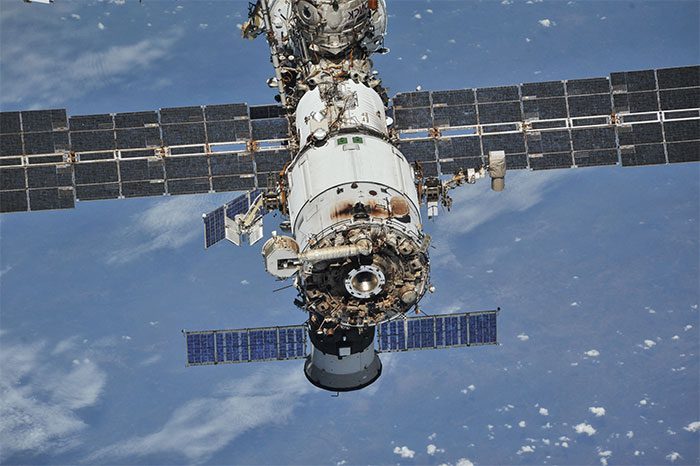A new study on osteoporosis in astronauts reveals that astronauts who spend approximately six months in space experience bone loss comparable to that of an elderly person suffering from the disease for 20 years.
According to Reuters, the study involved 17 astronauts who had worked on the International Space Station (ISS), including 14 men and 3 women. The average age of the astronauts was 47, and they participated in missions lasting from 4 to 7 months.

Space travel poses various challenges to the human body – (Photo: REUTERS)
The research collected data on the osteoporosis condition of these astronauts caused by the microgravity environment in space, as well as their ability to regain bone mineral density after returning to Earth.
The study found that one year after returning to Earth, astronauts, on average, showed a 2.1% reduction in mineral density in their tibia (a bone in the lower leg) and a 1.3% decrease in bone strength.
Nine of them were unable to recover their bone mineral density after their space flight, suffering from permanent osteoporosis.
“We know that astronauts experience osteoporosis during long-duration space travel. The novelty of this study is that we tracked the astronauts for a year after their space journey to understand whether their bones could recover,” said Professor Leigh Gabel from the University of Calgary (Canada). Professor Gabel is the lead author of the study published in the journal Scientific Reports.
The expert indicated that astronauts experience significant bone loss during approximately six months in space. This level of osteoporosis is equivalent to that of an elderly person on Earth suffering from osteoporosis for 20 years. “They only recover about half of their bone density after a year back on Earth,” Professor Gabel stated.
The condition of osteoporosis in space occurs due to the loss of gravity, as bones are not “exercised” to support the body as they are on Earth.
This study suggests that space agencies need to improve their strategies to address this issue, particularly in terms of exercise and nutrition regimens for astronauts.
The research team did not disclose the nationalities of the participating astronauts but noted that they came from the National Aeronautics and Space Administration (NASA), the Canadian Space Agency, the European Space Agency, and the Japan Aerospace Exploration Agency.





















































